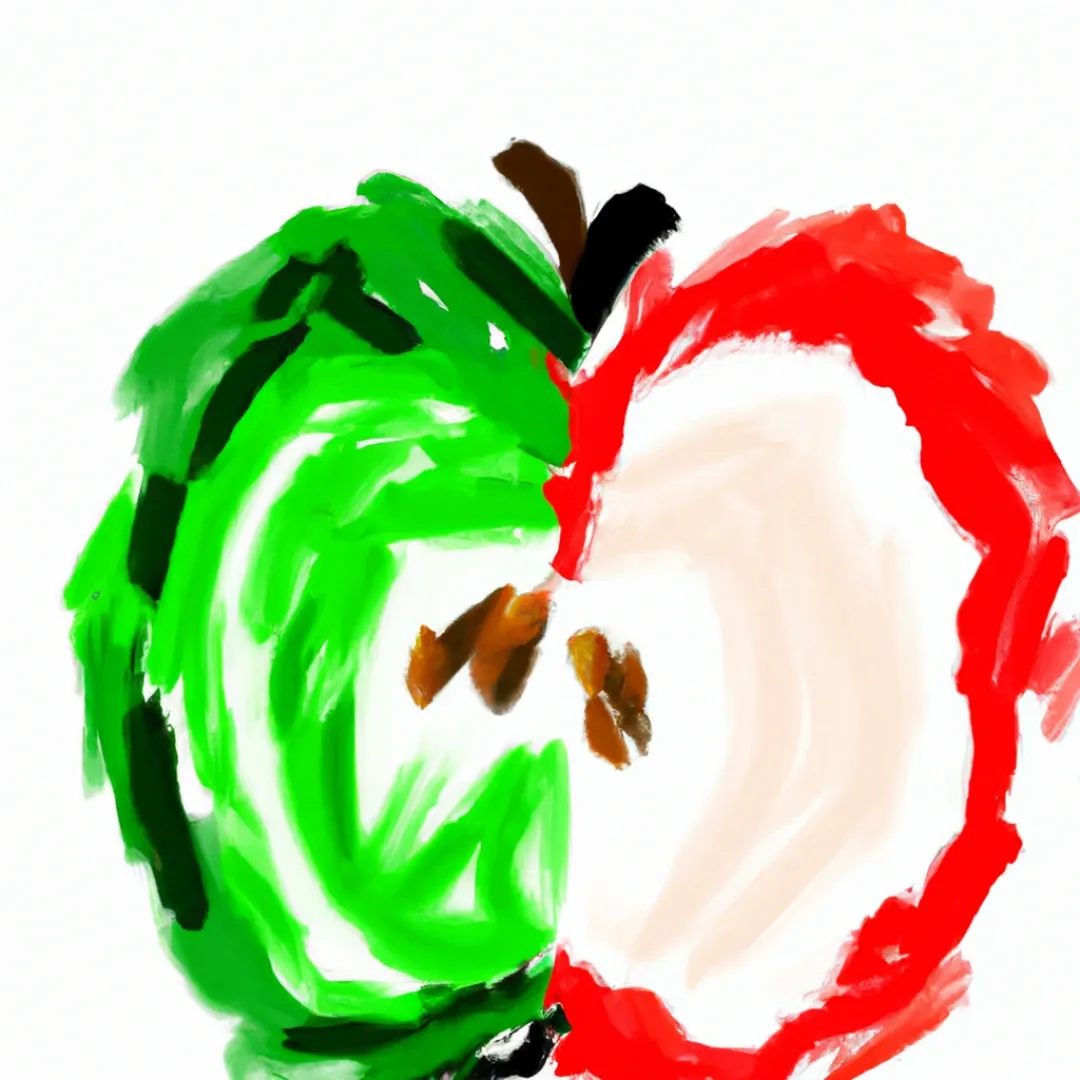What are qualia, anyway?
This is a simplified text and is part of a series of philosophical posts based on the article from the Stanford Encyclopedia of Philosophy. Stay tuned for the more detailed version soon.
- What are qualia? - The subjective experiences that shape our perception of the world.
- The Great Debate: Qualia vs. Science and the "knowledge argument."
- Inverted Qualia: Can we truly compare our subjective experiences?
- Mind-Brain Identity Theory: Are mental states identical to brain states?
- The Hard Problem of Consciousness: Why do we have subjective experiences?
- Qualia: Reality or Illusion? - Differing views on the nature of qualia.
- Implications for Artificial Intelligence: Can machines ever have subjective experiences?
- The Search Continues: Ongoing exploration of qualia and consciousness.
Imagine biting into a juicy apple.
That explosion of flavor, the crunchy texture, the refreshing sensation - all of these are qualia! They're the subjective experiences that make life, well... alive!
But here's the problem that makes scientists scratch their heads: how do we explain these experiences in physical terms? It's like trying to describe colors to someone who's never seen.
Fascinating and frustrating at the same time, isn't it?
The Great Debate: Qualia vs. Science
Some scientists argue that with enough knowledge about the brain, we could explain everything about conscious experience. But is that really true?
Imagine a super-scientist, let's call her Mary. She knows absolutely everything about the color red - wavelengths, neural processes, chemical reactions in the brain, everything!
But she's lived her entire life in a black and white world.
The big question is: when Mary finally sees red, does she learn something new?
This thought experiment, known as the "knowledge argument," suggests that there's something about subjective experiences that goes beyond mere physical information.
It's as if there's an extra dimension of reality that science still can't reach. Wow!
Inverted Qualia: Reality in Technicolor?
What if what you call "red" is what I call "blue," but we both use the same word? Impossible to know, right?
This idea of "inverted qualia" isn't just a fun mental exercise. It raises profound questions about the nature of reality and perception.
Can we really compare our subjective experiences? Or does each of us live in a unique perceptual universe? It's mind-blowing!
Qualia vs. Mind-Brain Identity Theory
While qualia focus on subjective experience, there's another theory that tries to explain consciousness in a more... mechanical way. The mind-brain identity theory argues that mental states are identical to brain states.
It's like saying the mind is simply the brain in action. Every thought, every sensation, every quale would just be a specific set of neurons firing.
But can this view fully explain the richness of conscious experience? Qualia advocates would say no. They argue that there's something about subjective experience that escapes this physical reduction.
The Hard Problem of Consciousness
Why do we have subjective experiences, anyway? Why aren't we just robots processing information without any internal sensation?
This is called the "hard problem of consciousness," and qualia are at the center of this cosmic puzzle. It's as if there's a chasm between the physical processes of the brain and the subjective experience of consciousness.
Some philosophers, like David Chalmers, argue that this problem is so profound that it might require a complete revision of our understanding of reality. Will we ever fully understand why we feel what we feel?
Qualia: Reality or Illusion?
Not everyone agrees that qualia are the key to understanding consciousness. Some philosophers, like Daniel Dennett, argue that qualia are a kind of illusion - that we can explain consciousness without resorting to these mysterious subjective experiences.
Dennett suggests that as we better understand how the brain works, the idea of qualia as something separate from physical processes will become unnecessary.
Others insist that qualia are fundamental to understanding the human mind and that no explanation of consciousness will be complete without taking them into account.
Implications for Artificial Intelligence
The discussion about qualia isn't just a philosophical exercise. It has profound implications for fields like artificial intelligence.
If qualia are essential to consciousness, does this mean that AIs will never be able to have true subjective experiences? Or will it be possible to create machines that not only process information but actually "feel" something?
The Search Continues
The journey to understand qualia and consciousness is far from over. Each new discovery in neuroscience, each advance in the philosophy of mind, takes us one step closer to unraveling this cosmic mystery.
And the most incredible thing? Each of us carries a qualia laboratory in our own head! Every sensation, every emotion, every thought is an opportunity to explore this fascinating aspect of reality.
So, the next time you savor your favorite ice cream, get emotional over a song, or marvel at a sunset, remember: you're experiencing one of the greatest mysteries of the universe. Your qualia are unique, personal, and, for now, scientifically inexplicable.
What do you think? Are qualia the key to understanding consciousness or an illusion we need to overcome? The journey to unravel this mystery continues, and each of us is part of this fascinating cosmic experiment!
Until next time, consciousness travelers! Keep exploring the mysteries of the mind - after all, the vastest universe might be right there, inside your head!
This is a simplified text and is part of a series of philosophical posts based on the article from the Stanford Encyclopedia of Philosophy. Stay tuned for the more detailed version soon.
